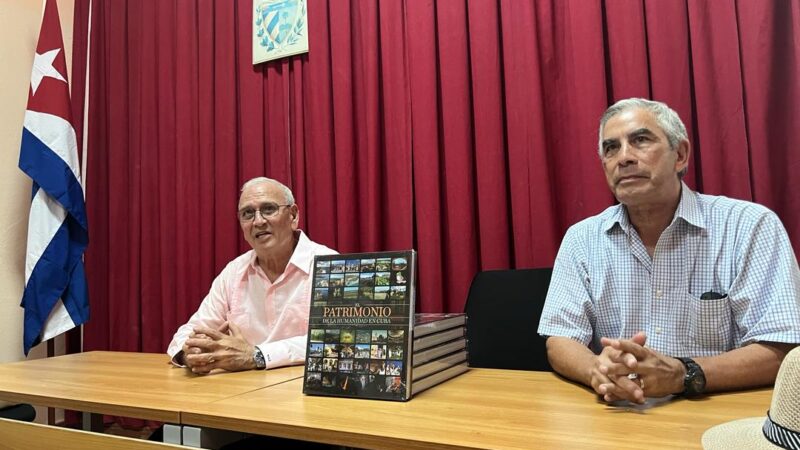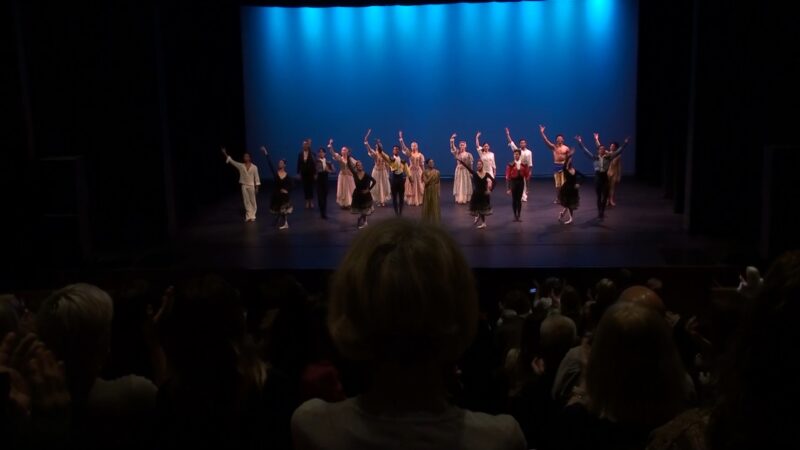Galician women in Cuba. Legacy and transcendence
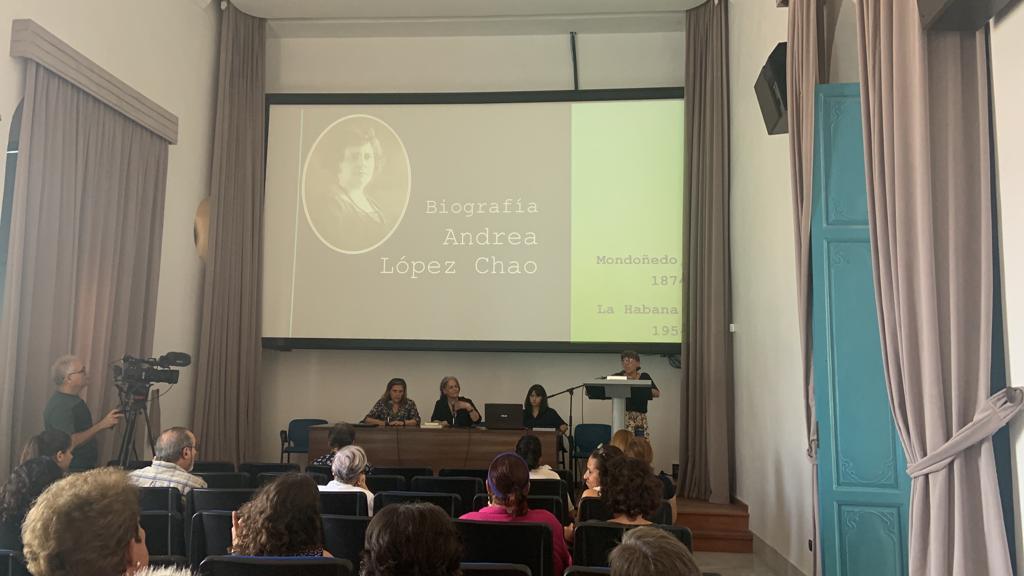
If we go beyond the epidermis of the facts and delve into their structure, unprecedented sounds emerge. Emotions and mixed feelings become one with traumas and collective memory. Loss and forgetting become the aegis of people, even if conditions and times change. What is missing becomes a universal feeling.
This is the moment when we begin the search to uncover the hidden, to discover ourselves in the disrupted times of the present, in the places that do not seem to be ours. Personal stories serve to construct the collective history that seems to have been erased by time and the power of men.
The Colloquium Galician Women in Cuba. Legacy and Transcendence, an attempt to bring together the fragmented image of Galicians and especially Galician women in the Antillean nation, took place on March 29 at the Palacio del Segundo Cabo in the historic center of Havana.
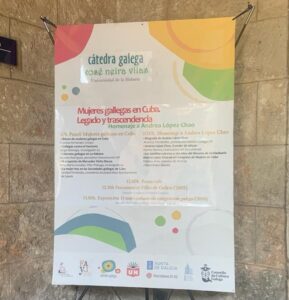
The event is the first in a series of activities aimed at highlighting and paying tribute to the figure of Andera López Chao, both in Cuba and Galicia, with a second part to be held in Mondoñedo in July of this year.
It was divided into four main sections: the first was a tribute to the Galician Andrea López Chao, followed by a panel on Galician women in Cuba.
After a coffee break and an exchange between the speakers and the audience, the documentary film Hijas de Galicia (2005) by Natacha Vázquez and Ernesto Daranas was shown. The event was followed by the opening of the exhibition O soño cubano da emigración galega (The Cuban Dream of Galician Emigration).
The organizer of the event, Arantxa Fernández Crespo, one of the current references on the Galician imprint in Cuba, presented the guiding ideas of the colloquium, as well as a brief biography of Andrea López Chao.
Patricia Ares Muzio, PhD in Psychology, great-granddaughter of this great intellectual who was ahead of her time, referred to her great-grandmother in this process of discovery. From a personal point of view, Ares Muzio dealt with the search for her great-grandmother, in the profile of a historical personality and one of the women who did the most for Galician women in Cuba.
Violeta Ramos, a Cuban journalist and documentary filmmaker living in Spain, also spoke about the figure of Andrea López Chao and how she became interested in «discovering and showing» her to others. She also expressed her interest in new audiovisual projects and in continuing the investigative search to remove the fog that still surrounds some aspects of López Chao’s life.
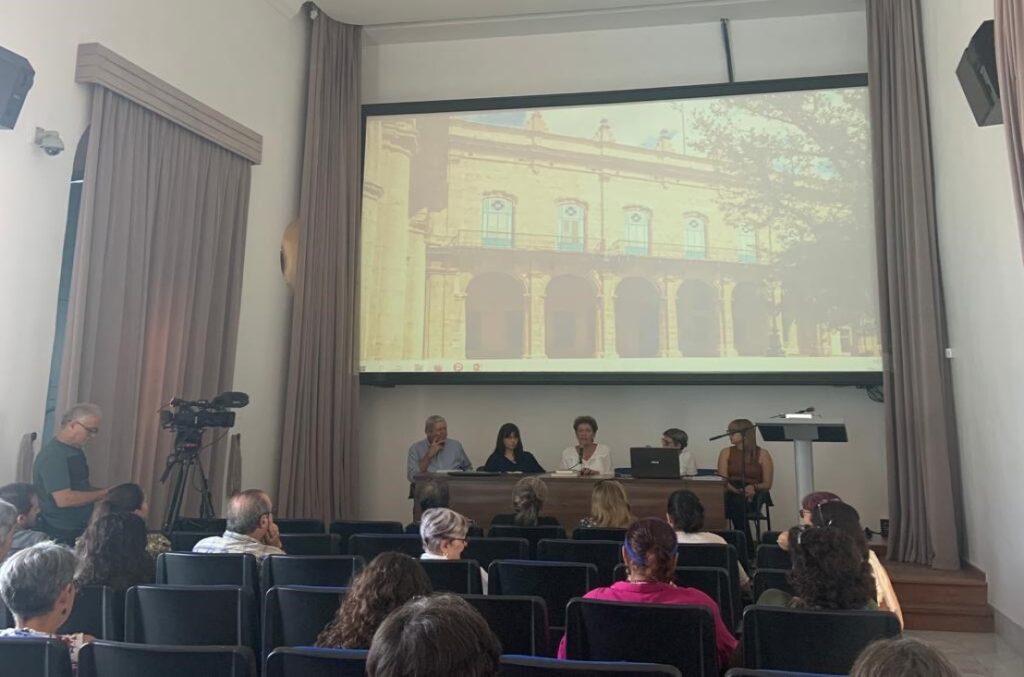
The researcher and writer Jorge Domingo also spoke about the Galician woman and her struggle against fascism, as part of an investigative contribution by philologists belonging to the Galician Department of the University of Havana.
Likewise, Caridad Fernández, president of the Sociedad Hijos del Ayuntamiento de Capela (Sons of the Town Council of Capela Society), spoke about the imprint of Galician women in Cuba. This space became the ideal justification to invite those present to carry out new research on these aspects of Galician women.
Hijas de Galicia delved deep into the emotions of those present. It was hard not to identify with the personal anecdotes presented in the documentary. Two life stories were told.
In the first, a 102-year-old Galician woman living in Cuba returned to her homeland after almost a lifetime away from her village in Galicia. Upon her reunion (she knew it was the last her eyes would ever see), her home was barely recognizable. From her memories, the audience could feel the gratitude and love for her land, which she never left in her heart, nor denied.
On the other hand, in an apparent generational leap, a Cuban woman born in Santiago de Cuba tells how she learned of her Galician roots and the encounter with her biological mother. The woman, who is obviously young compared to the old woman in the parallel story, feels the loss and is constantly searching for the truth. In both cases, the loss is superficial.
The filmmakers do not hide the rawness of time and distance. Nevertheless, they are able to show the intransigence and the will of two women who reassemble the memory stolen by circumstances. The Galician feeling and the strength of women, the links between Cuba and Galicia, and the feeling of closeness between cultures were the main ideas that emerged from the 25-minute medium-length film.
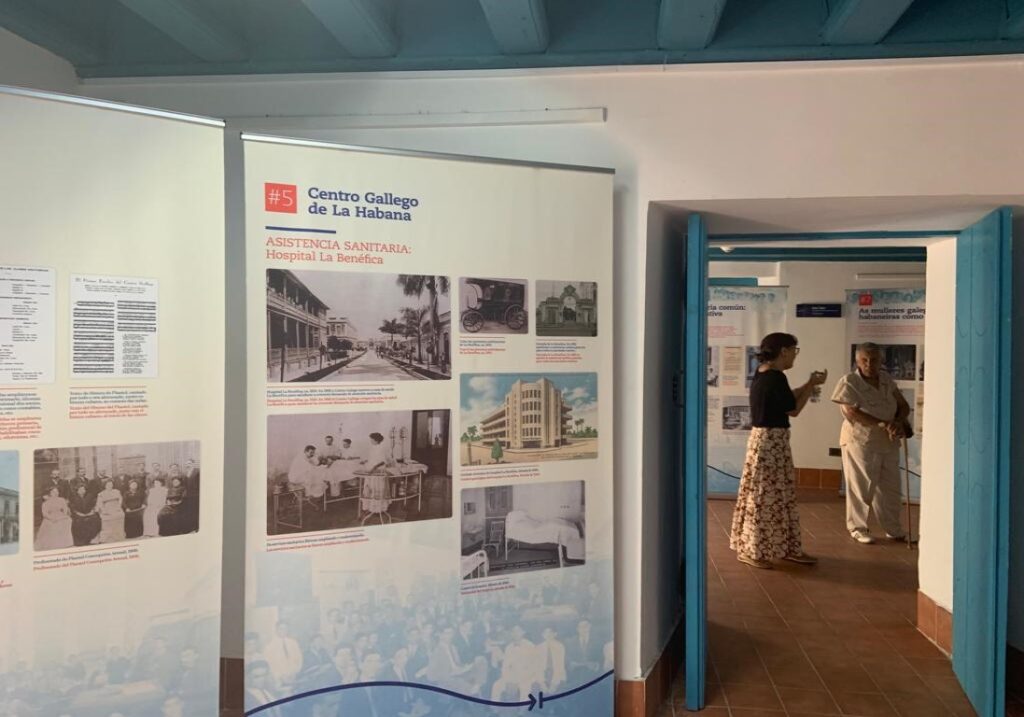
The exhibition O soño cubano da emigración galega (The Cuban Dream of Galician Emigration) was created as a tactile record of all that was discussed during the Galician Women in Cuba Colloquium. Legacy and Transcendence.
It served as the conclusion of the event and responds to a historical line of the arrival of Galicians in Cuba, their settlement, organization and struggle to keep the memory of Galicians and women in sight. The exhibition will be on display until April 29th and will serve as a visual book for Galicians living in Cuba and anyone interested in the subject.
Translated by Luis E. Amador Dominguez


